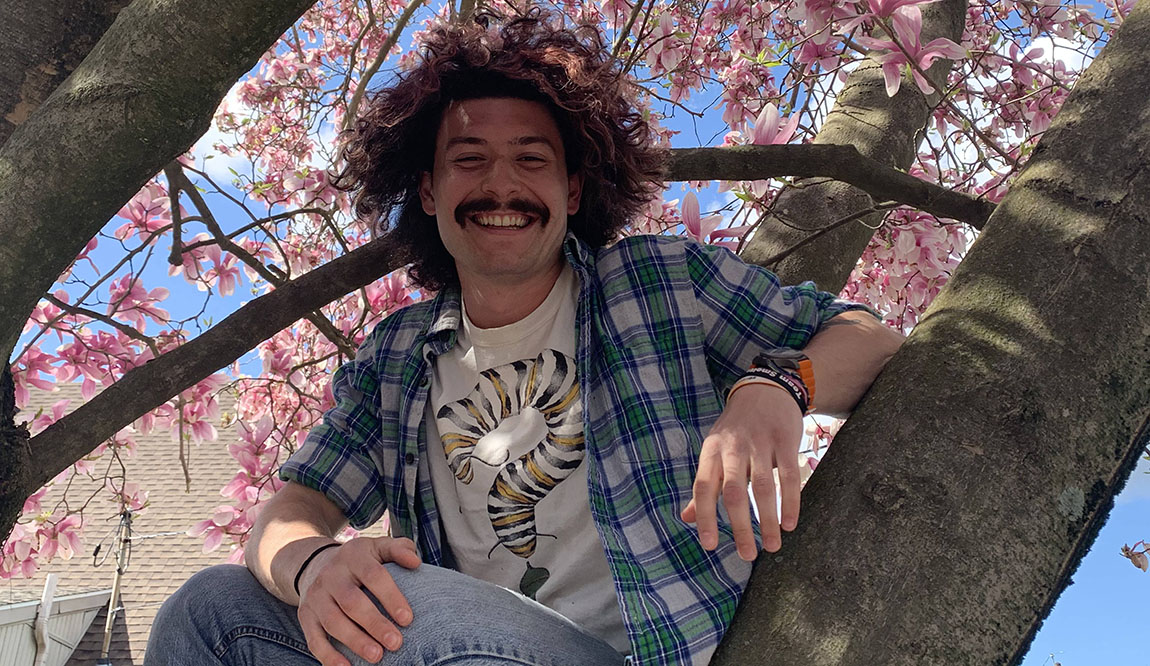Environmental Science Senior Uses Video to Teach Science to Elementary Schoolers
Even while away from his students, Ian Wolfe Adler ’20 is still creating lesson plans.By: Heather Mayer Irvine Thursday, April 23, 2020 08:57 AM
 Ian Wolfe Adler ’20
Ian Wolfe Adler ’20Ian Wolfe Adler ’20 won’t let the COVID-19 pandemic stop him from sharing his love of science with young learners. The environmental science major has been interning with the Lehigh Gap Nature Center, and until schools in Pennsylvania shut down, he had been going to Allentown School District elementary schools several times per week to conduct lessons.
“What drew me into [the internship] is that working with kids is very fulfilling,” Adler says. “You come in and be silly but also teach them something that you’re passionate about. It didn’t feel like I was getting course credit.”
But now, like teachers and professors around the world, Adler is creating video content to serve as virtual lessons. He’s doing this primarily for Roosevelt Elementary School in Allentown, through the Office of Community Engagement at Muhlenberg College and the Lehigh Gap Nature Center, though the videos are publicly available. (Alum Chad Schwartz ’16, director of science and education at the Lehigh Gap Nature Center, also shares knowledge on the YouTube channel.)
What were once carefully planned in-classroom lessons have morphed into something more freeform, Adler says.
“I look at whatever is around my house in York, Pennsylvania, that might be fun [to teach],” he says. For example, a recent lesson was on the skunk cabbage near his home, a plant so named because of the off-putting smell of its bruised leaves.
“The plant is endemic to the area, and it’s the first plant to come up in the spring,” he says. “People don’t really talk about skunk cabbage, so hopefully somebody learned something from that.”
Creating lesson plans that engage young students is challenging enough, Adler says. When nature is the lesson, it’s even more difficult to teach over video—Adler’s students are usually outside and up close to the subject matter.
“But now I have an anonymous audience,” Adler says.
That means he doesn’t get much, if any, feedback about whether his lessons are sticking.
“I try to keep [the videos] as true to form as if they were in-person lessons,” he says. “I respect teachers a lot, and I hope when I’m a teacher one day this sort of curveball doesn’t come up again.”
Adler will graduate in a few weeks and then head east to Lehigh University for a one-year graduate program in secondary education. He plans to keep teaching through the end of the elementary students’ school year.
“Teaching has been therapeutic for me,” he says. “[Virtual lessons] have still been fulfilling, just knowing that someone out there has learned something or been entertained. I like to think that’s still there.”
